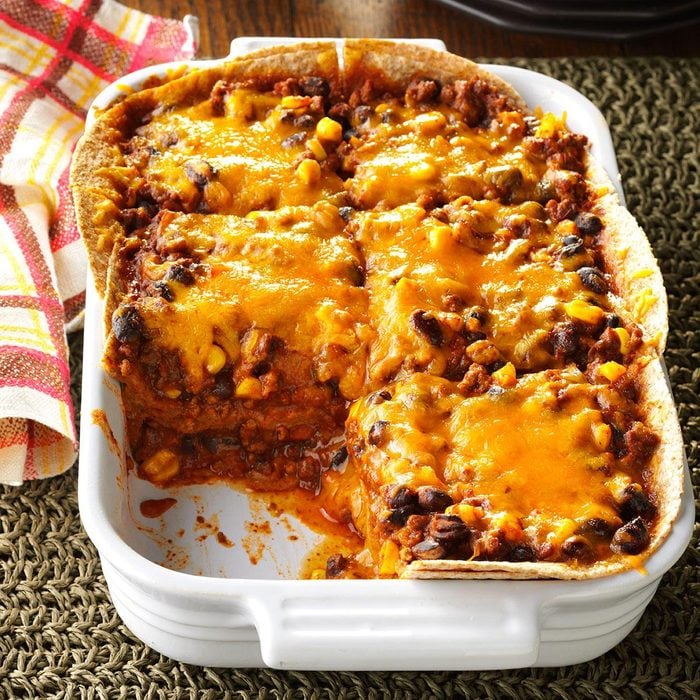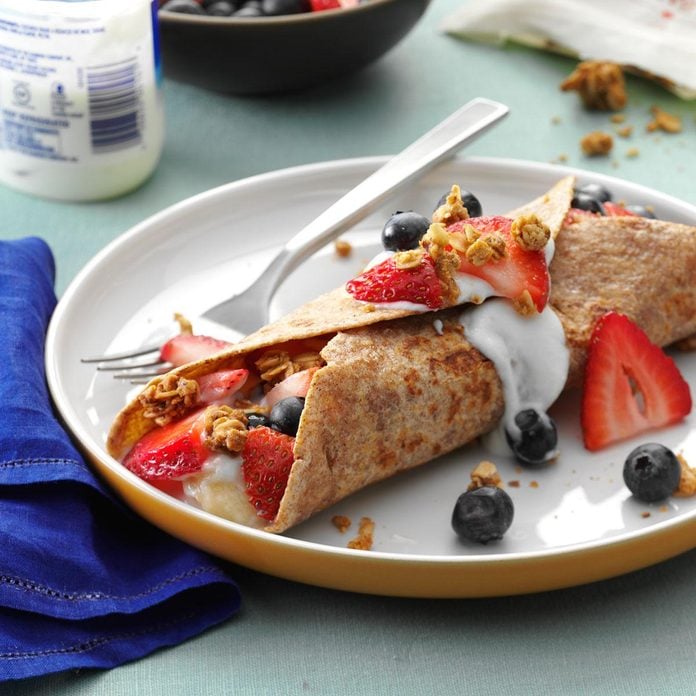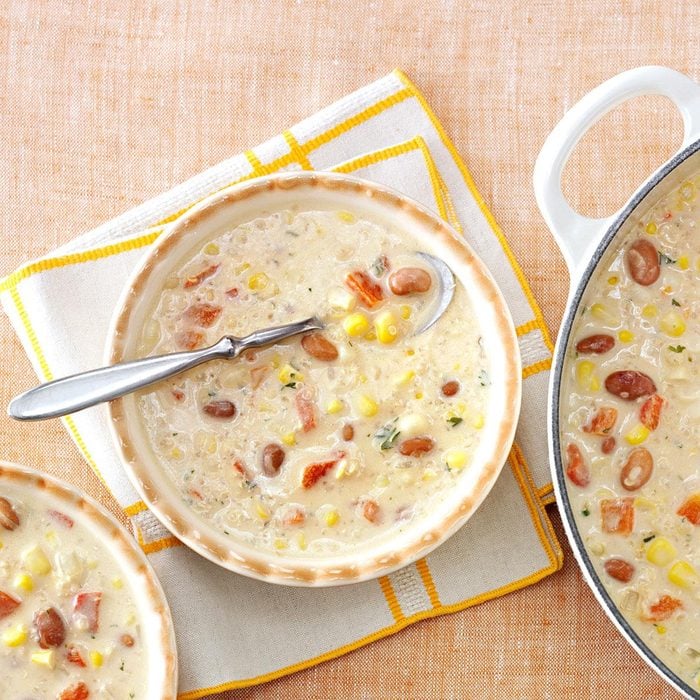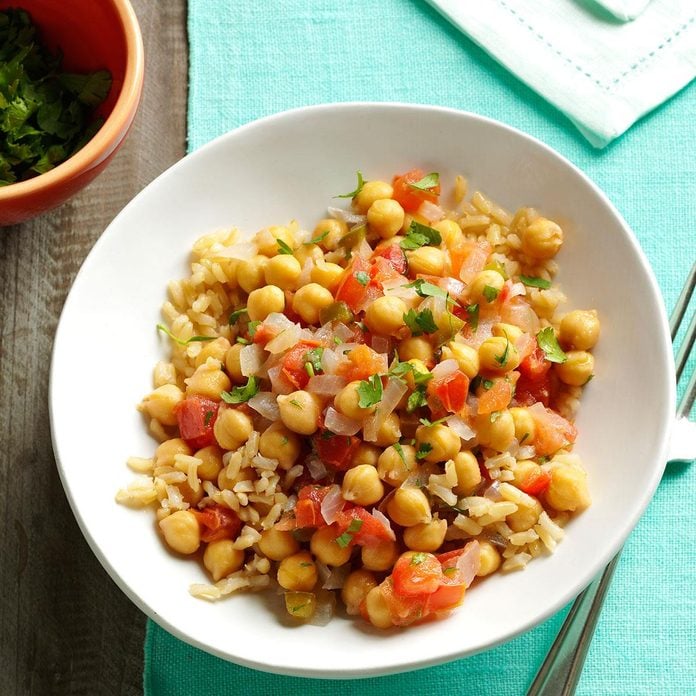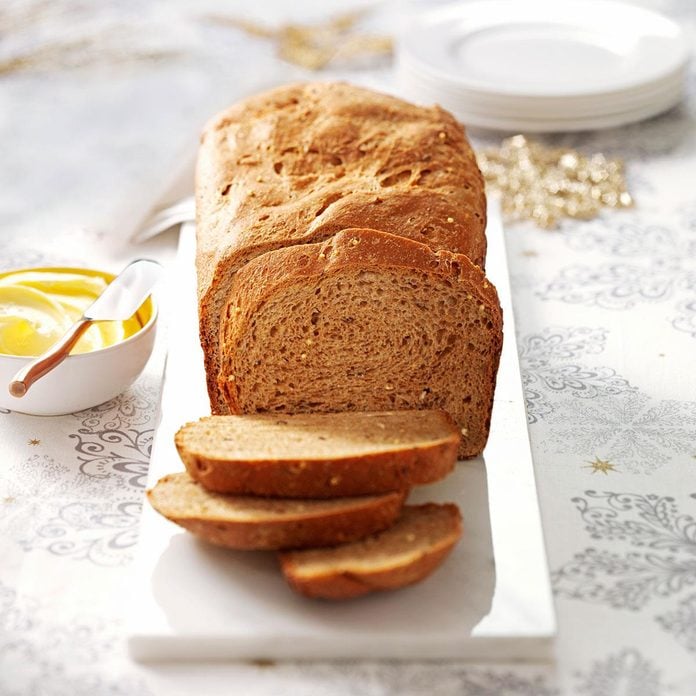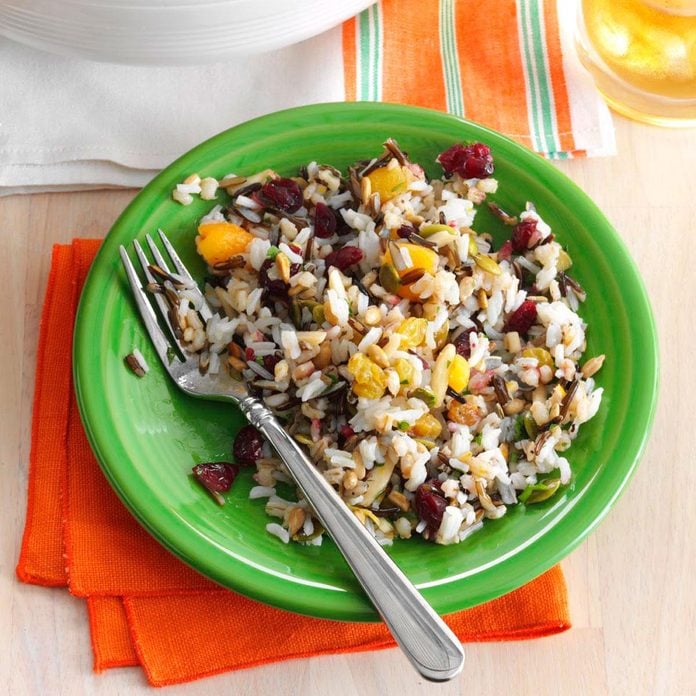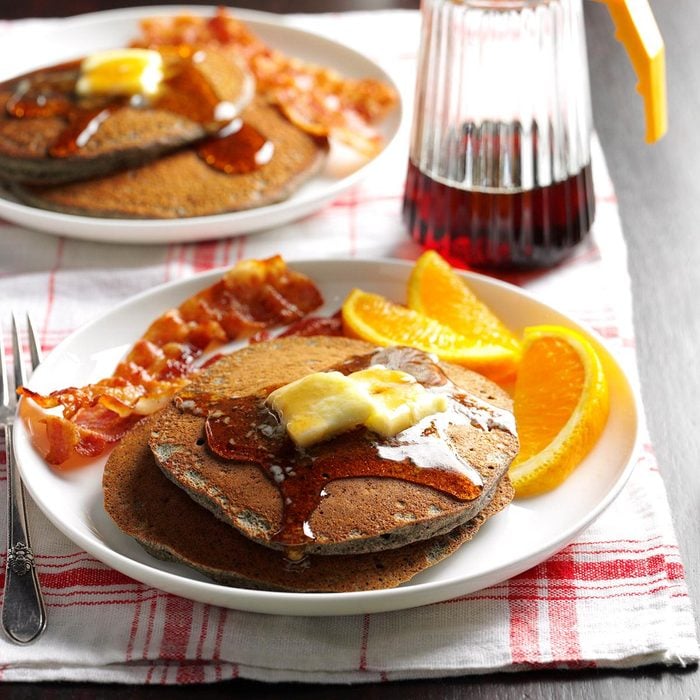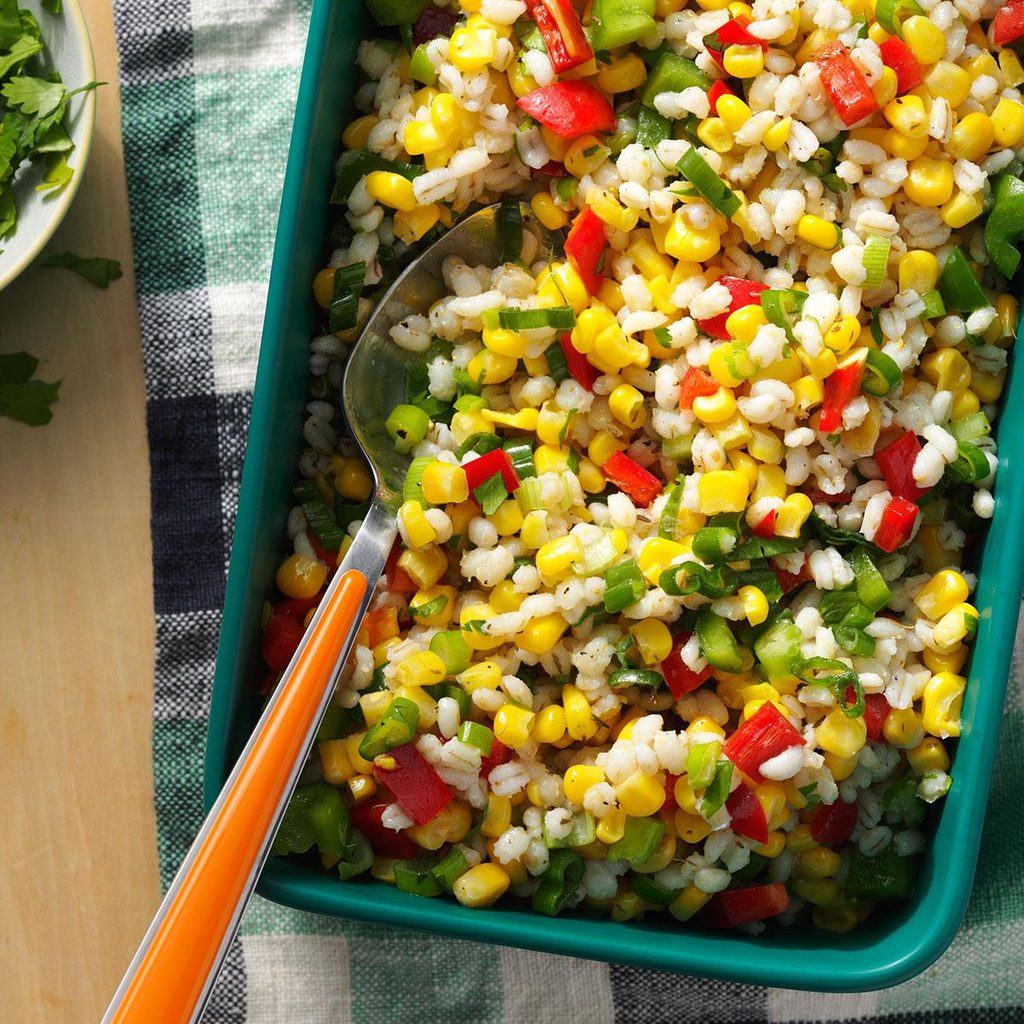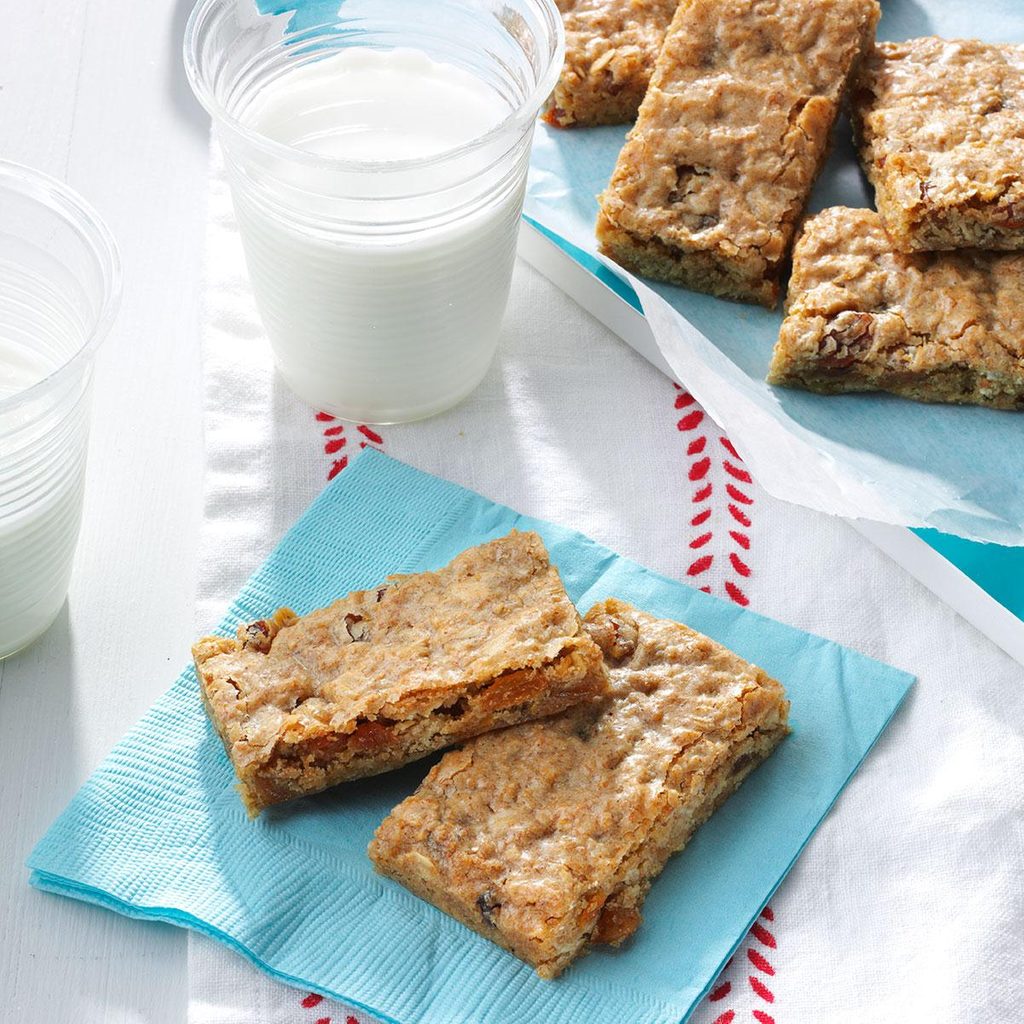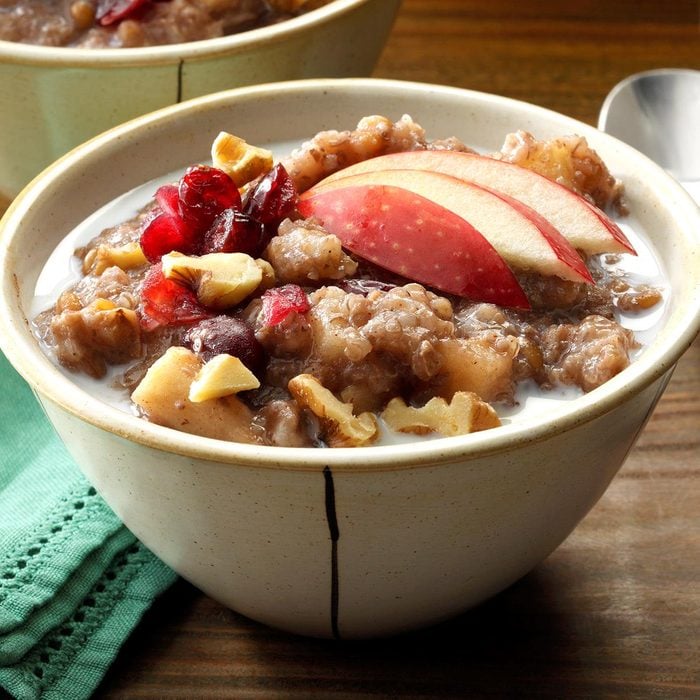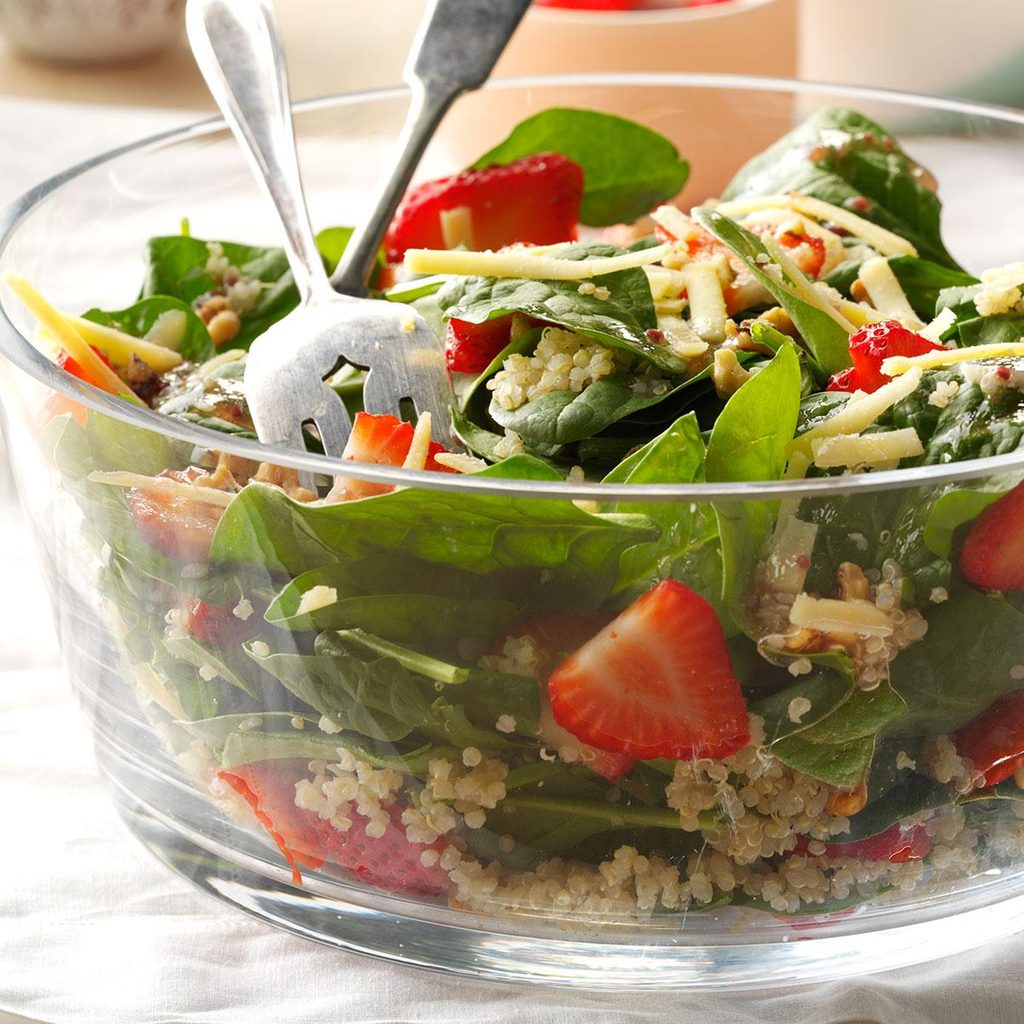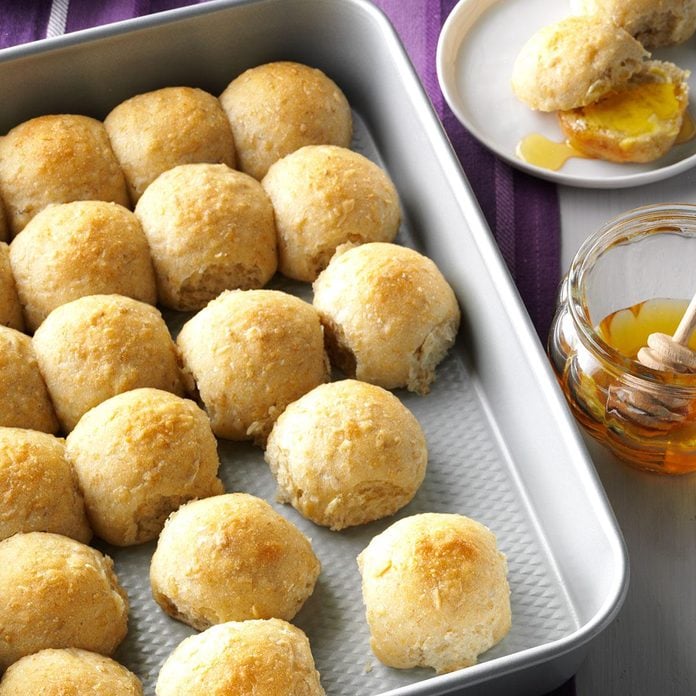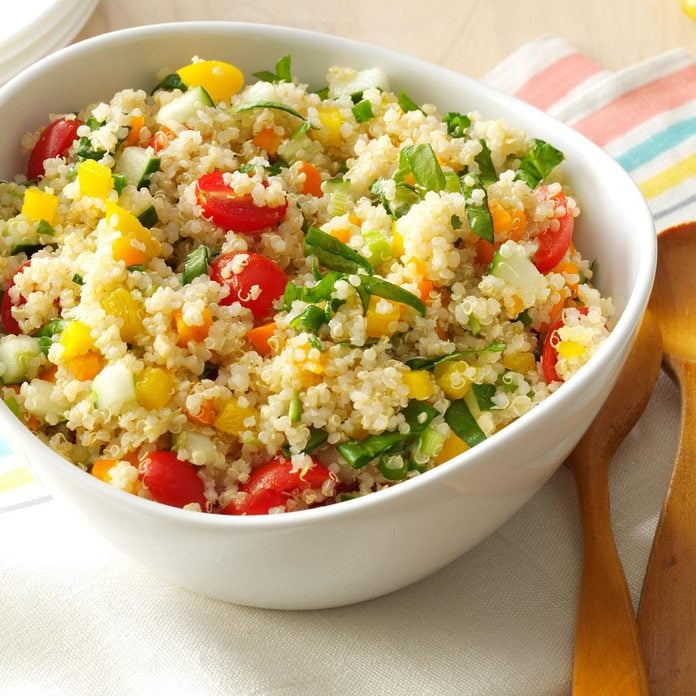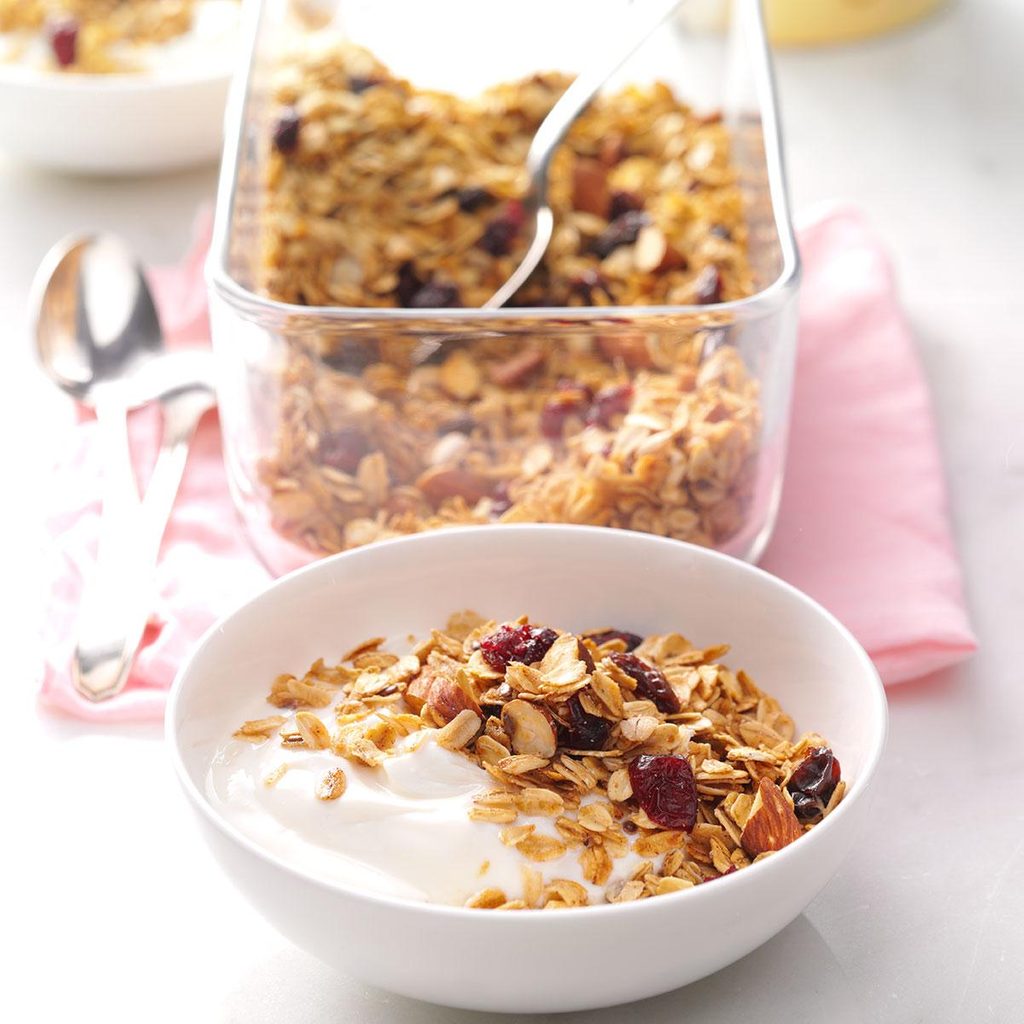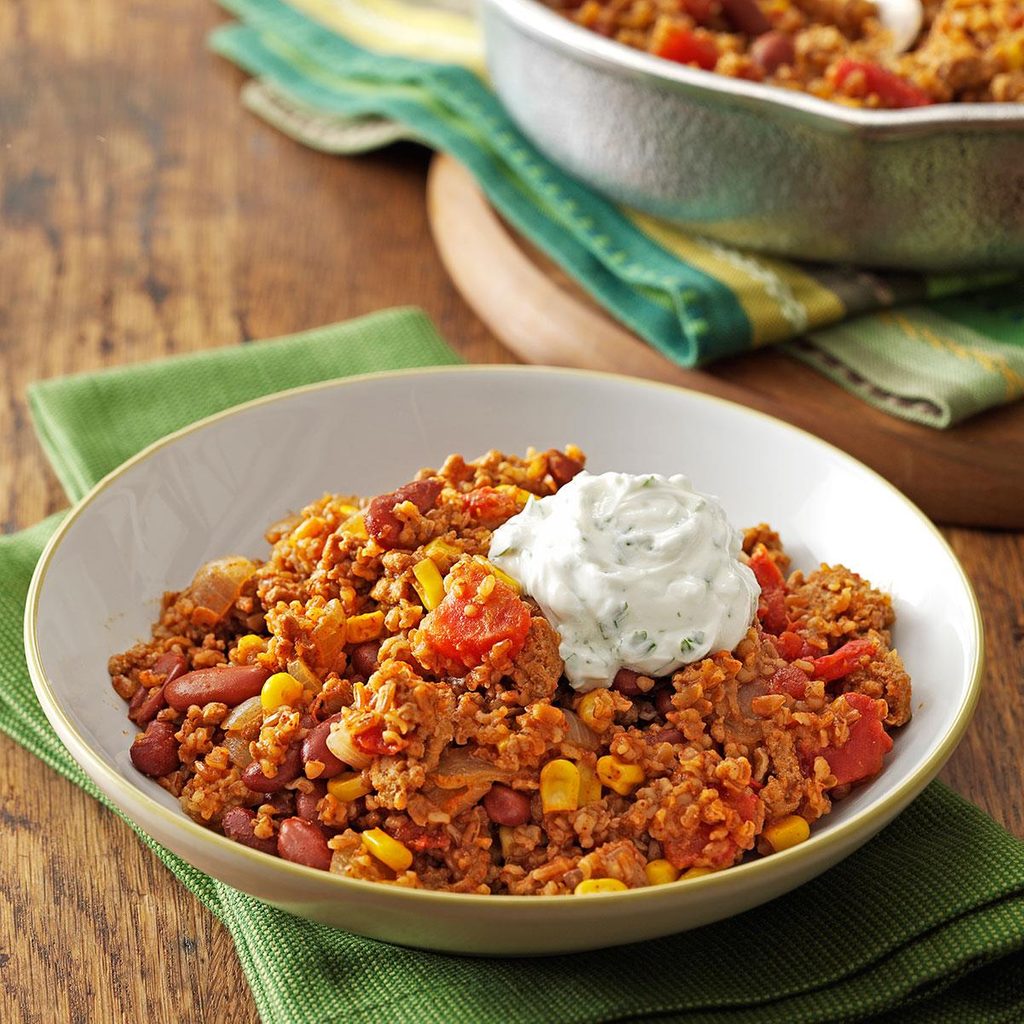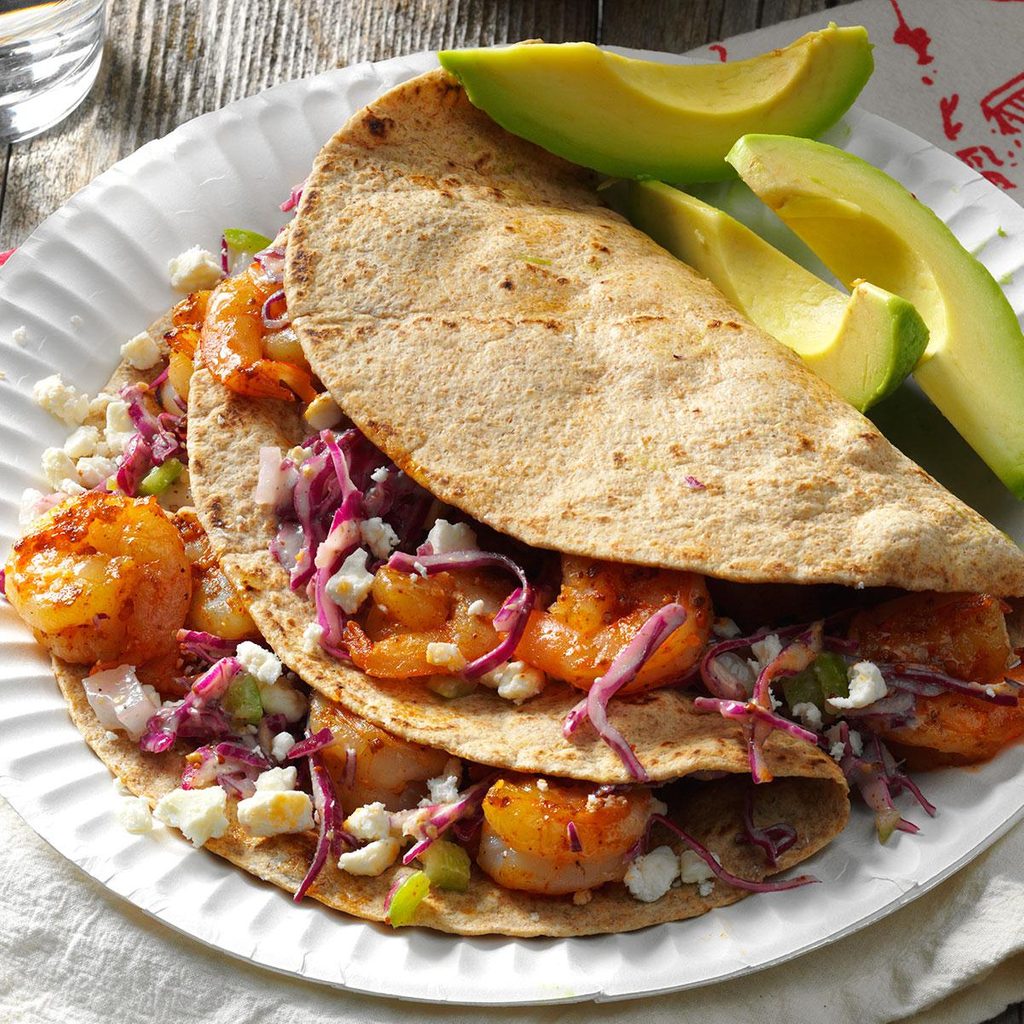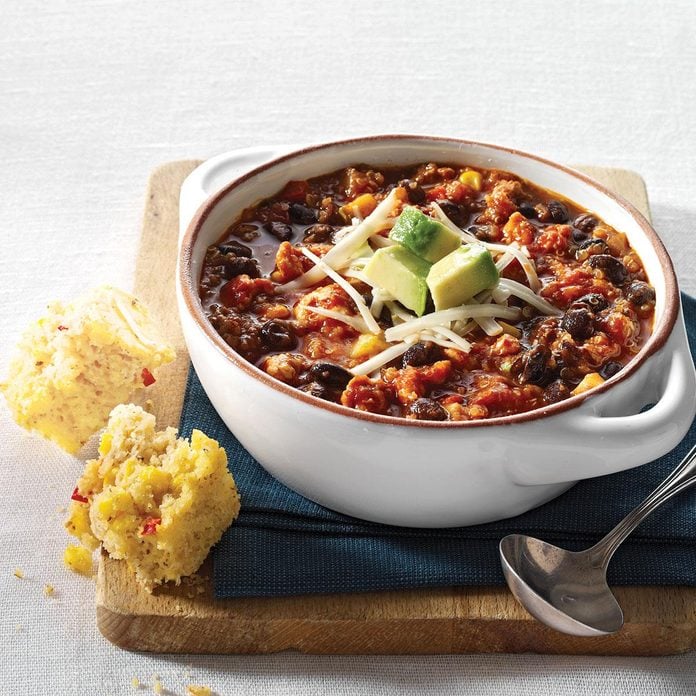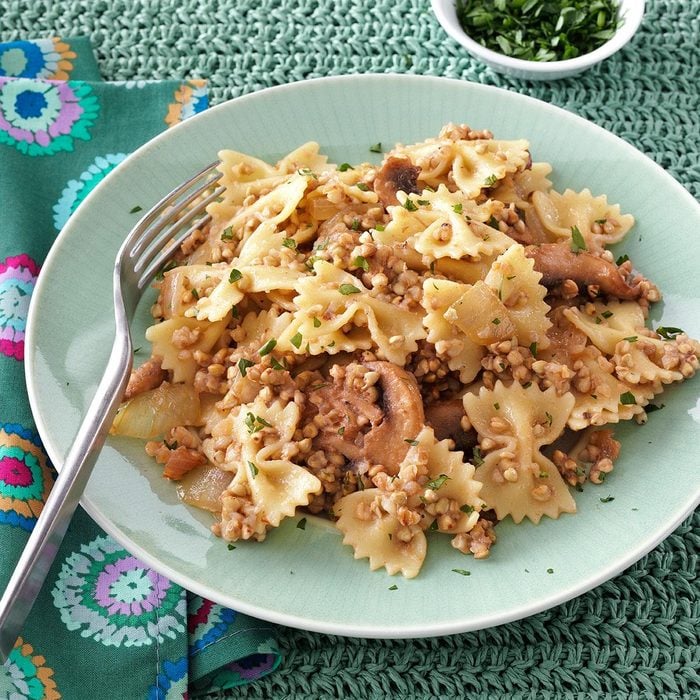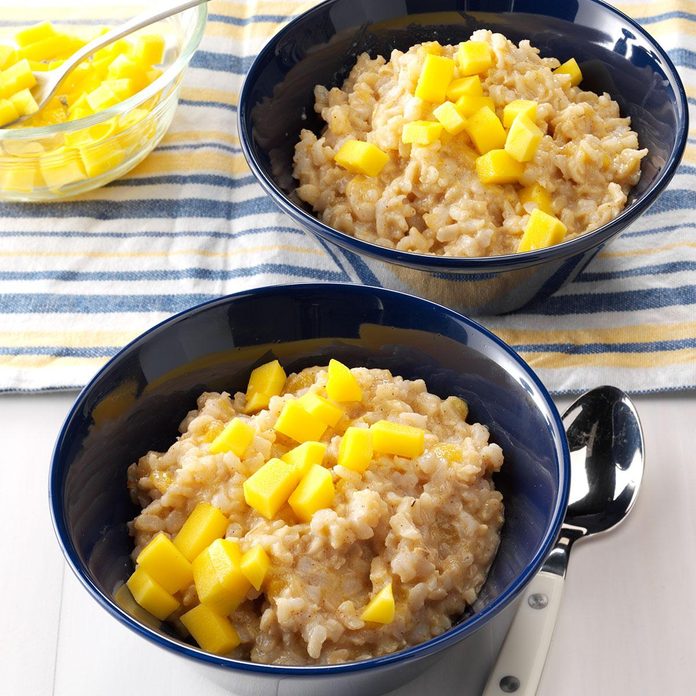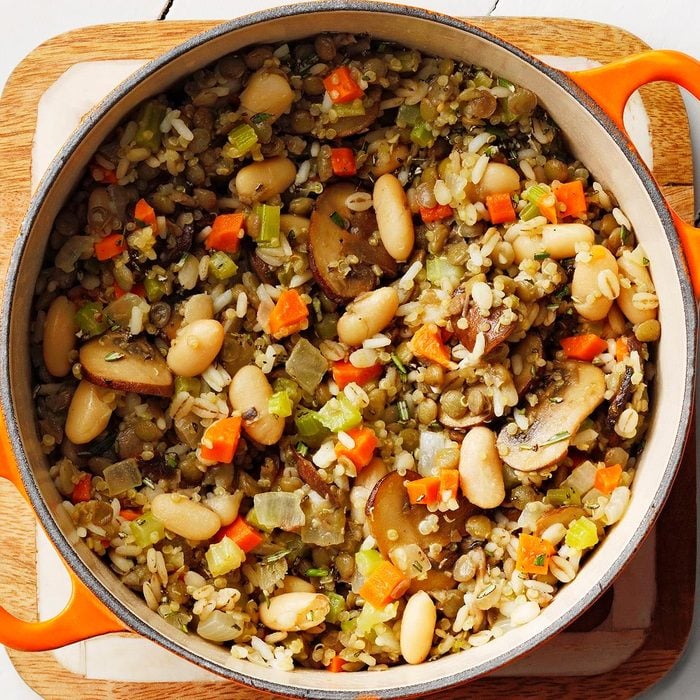If you're on a mission to eat more whole grains, try these delicious recipes.
Chili Tortilla BakeA homestyle Tex-Mex casserole is all it takes to gather the whole family around the dinner table. With its popular flavors and bubbly cheese topping, there is never a need to worry about leftovers. —Celine Weldy, Cave Creek, Arizona
Fruit-Filled French Toast WrapsHere’s my go-to whenever we have brunch guests. If I have extra berries, I just make a fruit salad for later. —Dawn Jarvis, Breckenridge, Minnesota
Hearty Quinoa & Corn ChowderMy grandmother lived in the Appalachian Mountains and always served straight-from-the-garden corn and beans. I updated her dish with quinoa and herbs. — Kari Napier, Louisville, Kentucky
Coconut-Ginger Chickpeas & TomatoesThis is my go-to quick dish. When you add tomatoes, you can also toss in some chopped green peppers (jalapenos, if you like heat) to make it even more colorful. —Mala Udayamurthy, San Jose, California
Seeded Whole Grain LoafMy husband and I want whole grain bread, but we don't like the spongy store-bought whole wheat breads. I drastically altered one of my favorite batter bread recipes to create this earthy bread. It is crunchy, chewy and easy. The add-ins are just suggestions. Sometimes I use pepitas, sesame seeds or even 1/4 cup of a multi-grain hot cereal mix. —Amber Rife, Columbus, Ohio
Great Grain SaladI can't think of a better dish to round out a meal. My grain salad features all my favorite nuts, seeds and fruits. Try adding grilled chicken to make it a meal on its own. —Rachel Dueker, Gervais, Oregon
Buckwheat PancakesThis buckwheat pancake recipe uses buckwheat flour instead of the wheat-based variety. The light and tender buckwheat pancakes offer a nutty flavor and hearty texture. —Taste of Home Test Kitchen
Stir-Fry Rice BowlMy meatless version of Korean
bibimbap is tasty, pretty and easy to tweak for different spice levels. —Devon Delaney, Westport, Connecticut
Barley Corn SaladA terrific alternative to pasta salad, this colorful side dish adds refreshing herb flavor to corn, barley, and red and green peppers. Bring it to your next get-together and see how fast it disappears! —Mary Ann Kieffer of Lawrence, Kansas
Barley Beef BurgersBarley adds another dimension to an old-fashioned hamburger. My husband and I really enjoy these juicy patties with onion and barbecue sauce mixed right in. —Rosella Peters, Gull Lake, Saskatchewan
Grilled Street CornMexican food is my grandmother’s favorite. I wanted a perfect side for her legendary tacos, and this chile-lime grilled corn turned out to be just right. —Ashley Crainshaw, Shawnee, Kansas
Cinnamon-Raisin Granola BarsI make these chewy bars with cinnamon, raisin and maple for quick breakfast and road trip. You can use chocolate chips instead of raisins. —Kristina Miedema, Houghton, New York
Apple-Cranberry GrainsI made some changes to my diet in order to lose weight. My kids are skeptical when it comes to healthy food, but they adore these wholesome grains. —Sherisse Dawe, Black Diamond, Alberta
Wild Rice, Quinoa & Cranberry SaladThis fragrant salad is a vitamin and protein powerhouse. Toss in leftover cooked turkey to make it a meal the next day. —Jerilyn Korver, Bellflower, California
Banana Oatmeal PancakesStart your day with a stack of banana oatmeal pancakes that are filled with nutrient-rich grains, oats, bananas and walnuts.
Shrimp & Broccoli Brown Rice PaellaYears ago my husband and I were vacationing in France and came across an open market where a man from Spain was making paella in a skillet; we've been hooked ever since. I love to whip this up for a large group, but if the gathering is small, I know I can easily freeze leftovers for another time. —Joni Hilton, Rocklin, California
Strawberry-Quinoa Spinach SaladWe make quinoa with spinach and strawberries year-round, but it's most fun when we go to the farmers market to get the season’s first berries. —Sarah Johnson, Indianapolis, Indiana
Cream of Wild Rice SoupTender cubes of chicken, fresh vegetables and wild rice make this soup hearty enough for a meal. You can't beat the down-home comfort of a warm bowlful. I like to serve it with whole wheat rolls. —J. Beatrice Hintz, Neenah, Wisconsin
Scottish Oatmeal RollsMy family likes rolls that can hold up to scooping gravies, sauces and more. This recipe is a favorite. The oatmeal in the dough gives it a Scottish touch. —Peggy Goodrich, Enid, Oklahoma
Black Bean Chicken with RiceThis spicy family favorite calls for just a few basic ingredients, including chicken, black beans and rice, so it’s quick and easy to stir up in your skillet on a weeknight. —Molly Newman, Portland, Oregon
Colorful Quinoa SaladMy youngest daughter recently learned she has to avoid gluten, dairy and eggs, which gave me a new challenge in the kitchen. I put this dish together as a side we could all share. We love it for leftovers too. —Catherine Turnbull, Burlington, Ontario
Get-Up-and-Go GranolaMy family loves to have this soul-warming granola before hiking, biking or even when camping. It smells delicious while baking up and you can easily make in large batches for special occasions or to send in gift packages to family and friends. —Sabrina Olson, Otsego, Minnesota
Southwest Turkey Bulgur DinnerIn the past few years, I’ve been trying to incorporate more whole grains in our dinners. Bulgur is one of my favorite grains to work with because of its quick cooking time. Besides being high in fiber and rich in minerals, it has a mild, nutty flavor that my kids enjoy. —Maria Vasseur, Valencia, California
Feta Shrimp TacosA unique combination of taco seasoning and feta cheese works remarkably well in these refreshing tacos. It’s a goodthing you get two per serving, because you won’t want to stop at one! —Athena Russell, Florence, South Carolina
Farmer's Market Corn SaladI love fresh corn on the cob, especially grilled, so I am always looking for innovative ways to serve it. This recipe takes the corn right off the cob and combines it with fresh basil. —Haras Cindie, Jupiter, Florida
Wild Rice CasseroleThe wild rice adds a wonderful flavor to this casserole. I like to serve it on special occasions. —Jann Marie Foster, Minneapolis, Minnesota
Nacho PopcornMy husband and I like to munch on this while watching TV. The nacho flavoring is a zesty alternative to butter and salt. —Linda Boehme, Fairmont, Minnesota
Quinoa Turkey ChiliThis heart-healthy turkey quinoa chili is not only tasty, it's a vitamin and protein powerhouse! —Sharon Giljum, San Diego, California
Kasha VarnishkesThis is one of the great Jewish comfort foods. It’s easy to put together, and leftovers make a surprisingly delicious breakfast. Find kasha with other grains or in the kosher foods section. —Joanne Weintraub, Milwaukee, Wisconsin
Mango Rice PuddingMangoes are my son's favorite fruit, so I was ecstatic to incorporate them into a healthy dessert. You can also use ripe bananas instead of mango, almond extract instead of vanilla or regular milk in place of soy. —Melissa McCabe, Victor, New York
Arugula & Brown Rice SaladWhen we have company, arugula with brown rice is always on the menu. It’s my go-to pick for the potluck and party circuit, and I'm always sharing the recipe. —Mindy Oswalt, Winnetka, California
Lentil White Bean PilafVegetarians will be happy to see this hearty meatless grain pilaf on the holiday buffet table. I like to make it when I have extra cooked lentils, barley, quinoa and rice. My friends and family swear it's better than its meaty counterpart! —Juli Meyers, Hinesville, Georgia
Quinoa & Black Bean Stuffed PeppersIf you're thinking about a meatless meal, give these no-fuss peppers a try. They come together with just a few ingredients and put a tasty spin on a low-fat dinner! —Cindy Reams, Philipsburg, PA
Asparagus Omelet Tortilla WrapSince this omelet is packed with whole grains, veggies and protein, all I have
to do is add a side of fresh fruit for a healthy breakfast before work. Instead of asparagus, sometimes I make this with fresh spinach. —Bonita Suter, Lawrence, Michigan



















